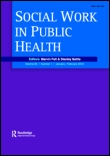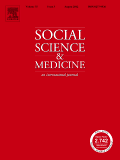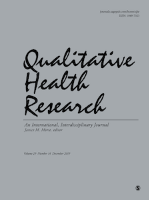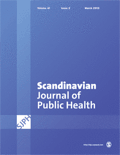
Ciencia & Saude Coletiva
Scope & Guideline
Shaping the future of health through collective knowledge.
Introduction
Aims and Scopes
- Public Health Research and Policy:
The journal publishes articles that critically analyze public health policies, their implementation, and their impacts on population health, especially in the context of Brazil's Unified Health System (SUS). - Social Determinants of Health:
Research exploring how social, economic, and environmental factors influence health outcomes is a core area. This includes studies on health inequalities, access to care, and the role of community health workers. - Health Care Systems and Services Evaluation:
The journal includes evaluations of health care services, focusing on their accessibility, quality, and effectiveness, particularly in primary health care settings. - Mental Health and Vulnerable Populations:
There is a consistent focus on mental health issues, particularly as they relate to vulnerable populations, including women, children, and marginalized communities, highlighting the need for inclusive health strategies. - Integrative and Complementary Practices:
The journal recognizes the significance of integrative and complementary health practices, promoting research that examines their role and efficacy within public health frameworks. - Crisis Response and Resilience:
Research addressing health system responses to crises, such as the COVID-19 pandemic, and the resilience of health services in the face of social and environmental challenges is increasingly prominent.
Trending and Emerging
- Intersectionality in Health Research:
There is a growing trend towards research that examines health through the lens of intersectionality, focusing on how overlapping social identities (such as race, gender, and socioeconomic status) affect health outcomes. - Digital Health and Telemedicine:
The impact of digital health technologies and telemedicine, especially in the context of the COVID-19 pandemic, is a rapidly emerging area, with significant research dedicated to their effectiveness and accessibility. - Community-Based Participatory Research:
A notable increase in community-based participatory research is evident, emphasizing collaboration with communities to address health disparities and develop culturally relevant interventions. - Mental Health and Well-Being:
Research on mental health, particularly in the context of the pandemic and its effects on various populations, is trending, highlighting the importance of mental well-being in public health. - Environmental and Climate Health:
Emerging studies focus on the relationship between environmental factors, climate change, and health outcomes, reflecting a growing recognition of sustainability in health policies. - Health Equity and Social Justice:
There is an increasing emphasis on health equity and social justice, with research aimed at addressing systemic inequalities and promoting inclusive health policies.
Declining or Waning
- Traditional Epidemiological Studies:
There appears to be a declining emphasis on traditional epidemiological studies that merely report statistical data without deeper contextual analysis or community engagement. - Focus on Single Disease Models:
Research that centers solely on single disease models, without considering the broader social determinants or comorbidities, is becoming less prevalent as the journal embraces a more holistic view of health. - Conventional Health Education Approaches:
Conventional health education strategies that do not incorporate participatory methods or address the cultural contexts of communities are receiving less attention, as the journal shifts towards more innovative and community-centered educational interventions. - Reduction in Historical Health Analyses:
There seems to be a waning interest in historical analyses of health policies and practices, as contemporary issues and real-time responses to health crises take precedence. - Narrowly Defined Health Interventions:
Research focusing on narrowly defined health interventions without consideration of systemic and structural factors affecting health outcomes is becoming less common.
Similar Journals

BMC PUBLIC HEALTH
Exploring the forefront of public health advancements.Welcome to BMC Public Health, a premier open-access journal published by BMC, dedicated to advancing research in the fields of public health, environmental, and occupational health. Since its inception in 2001, BMC Public Health has emerged as a leading platform for disseminating high-quality research, achieving a remarkable Q1 ranking in 2023 within its category, and earning a notable position of rank #114 out of 665 in Scopus, reflecting its impact and relevance in a competitive field. With a commitment to open-access publishing, the journal ensures that research findings are accessible to a global audience, fostering collaboration and knowledge sharing among researchers, professionals, and students alike. Based in the United Kingdom, BMC Public Health aims to address pressing issues in public health through innovative research and comprehensive reviews, making significant contributions to policy-making and best practices worldwide. We invite you to explore the wealth of knowledge and contributions made by authors in this essential publication.

Social Work in Public Health
Advancing knowledge at the intersection of health and social work.Social Work in Public Health is a leading journal that bridges the gap between social work and public health, published by ROUTLEDGE JOURNALS, TAYLOR & FRANCIS LTD. With an ISSN of 1937-1918 and an E-ISSN of 1937-190X, this journal has been a vital resource since its inception in 2007, and is set to continue its influence until 2024. Recognized for its significant contributions to the fields of Health Policy, Health (Social Science), Public Health, Environmental and Occupational Health, and Social Work, it consistently achieves a Q2 category ranking in several of these critical areas, reflecting its robust impact and relevance in contemporary research. The journal operates without open access restrictions, thereby offering a wide array of valuable research insights to professionals, scholars, and students interested in the interdisciplinary approaches necessary to address health inequities and enhance community well-being. As it continues to gain traction—ranking among the top journals in its fields by Scopus with notable percentiles—it remains an essential platform for disseminating innovative research that shapes policy and practice in social work and public health.

International Journal of Human Rights in Health Care
Championing human rights in the pursuit of health care excellence.International Journal of Human Rights in Health Care, published by EMERALD GROUP PUBLISHING LTD, stands as a critical forum for the investigation and discussion of human rights issues in the context of health care. Established in 2015 and continuing to 2024, this journal focuses on interdisciplinary research that intersects the realms of health policy, sociology, and public administration, providing valuable insights and scholarly discourse. With an impressive ISSN of 2056-4902 and recognized publication in the United Kingdom, it has achieved notable rankings across various categories, including Q2 in Sociology and Political Science and Q3 in Health Policy and Social Psychology. The journal's commitment to addressing the pressing challenges at the crossroads of human rights and health care makes it an essential resource for researchers, professionals, and students dedicated to advancing equitable health outcomes. Though it does not currently offer Open Access options, the journal maintains a high standard of quality and relevance, as evidenced by its Scopus rankings, solidifying its position in the academic community.

JOURNAL OF BEHAVIORAL HEALTH SERVICES & RESEARCH
Unveiling the complexities of health service delivery.JOURNAL OF BEHAVIORAL HEALTH SERVICES & RESEARCH, published by Springer, is a premier peer-reviewed journal dedicated to advancing the scientific understanding of behavioral health services and their impact on individuals and communities. With its esteemed standing in the academic realm, as demonstrated by its Q1 ranking across multiple categories including Health Policy and Public Health in 2023, this journal offers vital insights into the intricacies of health service delivery, policy innovation, and the social determinants of health.
Since its inception in 1996, the journal has played a crucial role in disseminating high-quality research that addresses the evolving challenges in health services, and is uniquely positioned to contribute to the evidence-based advancements in this field through its valuable contributions and a growing repository of knowledge. Researchers, professionals, and students can benefit from both open access options and a subscription model to stay abreast of transformative trends and empirical evidence shaping behavioral health services.
As it continues to converge into the future, this journal remains a vital platform for those committed to enhancing the effectiveness of health services and promoting significant improvements in health outcomes across diverse populations.

Journal of the American College of Emergency Physicians Open
Unlocking Vital Insights for Emergency Care ProfessionalsJournal of the American College of Emergency Physicians Open is a prominent Open Access journal published by WILEY that has been committed to advancing the field of emergency medicine since its inception in 2020. As a vital resource for researchers, clinicians, and students, this journal aims to disseminate innovative research findings, clinical guidelines, and educational resources that support the rapidly evolving landscape of emergency care. With a solid Q1 ranking in the emergency medicine category and positioned within the top 25 ranks of Scopus’ emergency medicine listings, the journal ensures high visibility and accessibility for critical research. As an open-access publication, it provides unrestricted access to its content, facilitating knowledge sharing and collaboration among professionals globally. The journal's significant impact on the field is reflected in its growing influence, underlining its relevance as an essential platform for advancing emergency medicine practice and research.

SOCIAL SCIENCE & MEDICINE
Connecting Research and Practice for Enhanced Health OutcomesSOCIAL SCIENCE & MEDICINE, published by Pergamon-Elsevier Science Ltd, is a premier international journal dedicated to advancing knowledge in the interconnected realms of social sciences and medicine. With an impressive impact factor and categorized in the Q1 quartile across Health (social science), History and Philosophy of Science, and Miscellaneous Medicine, this journal is instrumental for researchers and practitioners striving to understand the social dynamics impacting health and well-being. Since its inception in 1967, the journal has maintained rigorous scholarly standards, providing a platform for innovative research, critical reviews, and interdisciplinary collaboration. By focusing on the socio-political determinants of health, it serves as a valuable resource for academics, professionals, and students alike, fostering a holistic understanding of health-related issues in contemporary society. Access options are tailored for a wide audience, ensuring the dissemination of essential findings and insights to aid in policy-making, healthcare practice, and public health initiatives.

QUALITATIVE HEALTH RESEARCH
Pioneering Qualitative Approaches in Health ServicesQUALITATIVE HEALTH RESEARCH is a pivotal journal published by SAGE Publications Inc, specializing in the dynamic field of qualitative research within public health and health services. With an ISSN of 1049-7323 and an E-ISSN of 1552-7557, this esteemed publication has secured a prominent position in academic discourse, as evidenced by its Q1 ranking in the 2023 category of Public Health, Environmental and Occupational Health and a Scopus rank of #100 out of 665, placing it in the 85th percentile. Since its inception in 1991, the journal has fostered innovative methodologies and diverse perspectives, making it an essential resource for researchers, professionals, and students dedicated to understanding the complexity of health experiences and outcomes. Although it does not feature open access, QUALITATIVE HEALTH RESEARCH remains committed to advancing knowledge and scholarly dialogue, ensuring that significant contributions in qualitative methodologies are readily available to a global academic audience.

SCANDINAVIAN JOURNAL OF PUBLIC HEALTH
Exploring the frontiers of public and environmental health.Scandinavian Journal of Public Health is a premier academic journal published by SAGE Publications Ltd, delivering high-quality research in the fields of public health, environmental health, and occupational health. With an impressive impact factor and recognition as a Q1 journal in both the Medicine (Miscellaneous) and Public Health, Environmental and Occupational Health categories, it ranks among the top journals with a Scopus ranking of #110 out of 665, placing it in the 83rd percentile. Established in 1973, the journal has consistently fostered the dissemination of innovative public health research and practices, providing a platform for researchers, professionals, and students alike. Its commitment to open access facilitates widespread accessibility to crucial findings and discussions, thereby enhancing knowledge and improving health outcomes globally. With its long-standing history and continuous contribution to the field, Scandinavian Journal of Public Health remains an essential resource for those dedicated to advancing public health knowledge and practice.

HEALTH POLICY
Illuminating the impact of policy on health outcomes.HEALTH POLICY is a leading academic journal dedicated to the examination and analysis of health policy issues globally, published by Elsevier Ireland Ltd. With an impressive Q1 classification in the field of Health Policy, as indicated by its Scopus ranking of #44 out of 310 and an 85th percentile standing, this journal serves as a critical platform for researchers, practitioners, and policymakers interested in the complexities of health systems and the impact of policy decisions. Since its inception in 1984 and continuing through 2024, HEALTH POLICY has consistently contributed to the discourse surrounding health services, equity, and sustainability, providing access to original research, thorough reviews, and insightful commentaries. Although it operates under a traditional subscription model, the journal is essential for those seeking to stay informed on contemporary challenges and emerging trends in health policy.

Journal of Migration and Health
Bridging Gaps in Health for Migrant CommunitiesJournal of Migration and Health, published by ELSEVIER, is a leading open access journal dedicated to exploring the intersection of migration and health, a critical area of study in contemporary social sciences. Since its inception in 2020, this journal has quickly established itself in the academic community, earning a prestigious Q1 ranking in several categories including Demography, Health (Social Science), Infectious Diseases, and Sociology and Political Science for 2023. With an impactful presence reflected in its Scopus Rankings—such as Rank #15 in Demography and Rank #57 in Health (social science)—the journal serves as a vital platform for researchers, practitioners, and students interested in understanding the complex health dynamics affecting migrant populations. The journal promotes scholarly discourse through rigorous peer-reviewed articles, fostering knowledge that informs health policies and practices relevant to migrants across the globe. For those keen on delving into pressing health issues influenced by migration trends, the Journal of Migration and Health offers rich insights and research opportunities, playing an essential role in shaping the future of health studies in a global context.